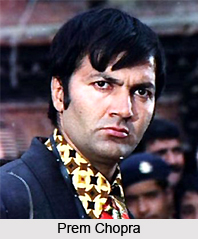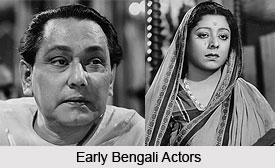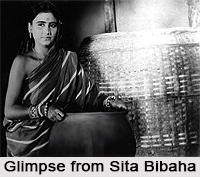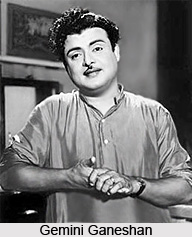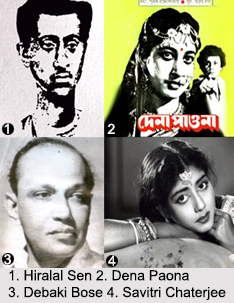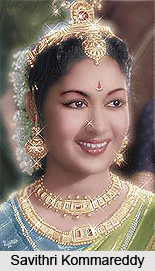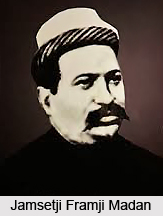 Jamshetji Framji Madan was born in 1856 in a Parsi family in Mumbai. He was one of the pioneers of the Indian film industry. Madan`s father had suffered a huge monetary loss when Bombay Reclamation Bank closed down. JF Madan then left school and joined Elphinstone Dramatic Club as a prop boy in 1868. Later by 1875, the club turned into a renowned professional theatre company performing shows all over India.
Jamshetji Framji Madan was born in 1856 in a Parsi family in Mumbai. He was one of the pioneers of the Indian film industry. Madan`s father had suffered a huge monetary loss when Bombay Reclamation Bank closed down. JF Madan then left school and joined Elphinstone Dramatic Club as a prop boy in 1868. Later by 1875, the club turned into a renowned professional theatre company performing shows all over India.
Career of Jamshetji Framji Madan
Jamshetji Framji Madan started his career with Cooverji Nazir`s Theatrical Company as an actor. After that he proceeded and acquired a company and started an entire set of business activity like importing of food items, liquor, real estate, insurance, films and film equipment, and two theatrical companies in Kolkata - Alfred and Corinthian. These companies boasted of competent actors and actresses including the noted Urdu playwright Agha Hashr Kashmiri. In 1902, J.F. Madan organized `bioscope shows` in Calcutta. These were held in tents and were extremely popular.
In 1907 Elphinstone Picture Palace was set up. With this, Madan took the first step toward his theatre chain that would eventually stretch across India, Burma (then a part of India) and Ceylon (now, Sri Lanka). The success of his stage plays prompted Madan to produce his own films `Satyavadi Raja Harishchandra` (1917) and `Bilwamangal` (1919).
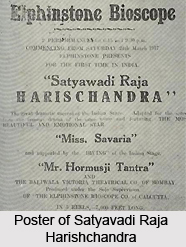 In 1919 Madan launched the Madan Theatres Limited. This was to become India`s largest production-distribution-exhibition company and the biggest importer of American films after the World War I. The European film industry was badly affected by the war, and since both celluloid and explosives were made from one and the same material, Filmmaking suffered. American serials such as Perils of Pauline and Exploits of Elaine, and the spectacular sets of films like Quo Vadis and Cabira were popular and inspiring.
In 1919 Madan launched the Madan Theatres Limited. This was to become India`s largest production-distribution-exhibition company and the biggest importer of American films after the World War I. The European film industry was badly affected by the war, and since both celluloid and explosives were made from one and the same material, Filmmaking suffered. American serials such as Perils of Pauline and Exploits of Elaine, and the spectacular sets of films like Quo Vadis and Cabira were popular and inspiring.
Grand sets became the norm at Madan Theatres and mythological stories provided all the necessary ingredients for a successful film. Characterization corresponded to the all-round spectacle - men were of tremendous courage and gallantry, and the women were renowned for their beauty and intelligence. By being the first to employ foreign directors for his films, Madan was able to introduce a hitherto unknown level of sophistication in Indian films. The films were vastly ahead of its contemporaries in terms of sets and direction. Eugenio De Liguoro directed six films for Madan Theatres, including Dhruva Charitra in 1921, Nala Damyanti, Ramayana (the serial) in 1922 and others.
The film, `Ratnavali` was directed by Camille Legrand of Pathe studios in Paris. Patience Cooper (an actress from Kolkata) won accolades for her performance as the princess, and was one of the few stars of the silent era to continue successfully into talkies. This Sanskrit classic was one of several films that Legrand directed for Madan Theatres.
Among the first to acquire rights to some of the stories of Bankim Chandra Chatterjee and Rabindranath Tagore, Jamsetji Framji Madan`s entrepreneurship was never found wanting. His death in 1923 saw the empire pass into the hands of his sons, of whom J.J. Madan donned the mantle best. However, a fire at the studios in 1925 destroyed much but the company proved resilient.
In addition to many films like Jaydeo, Prafulla, and Krishnakant`s Will (1926); & Indrasabha, Bilwamangal. (Talkie version) (1932); Madan Theatres ventured into the territory of educational films such as ones for medical students on new methods of surgery, and Cry of Children for the Public Health Department of Bengal. Short films for tea, jute, cotton, tobacco, travel industries were part of the Madan business. In the mid-thirties, Madan Theatre passed out of the hands of the Madan family, a change brought about by the corrupt staff and the economic crisis facing the company.








